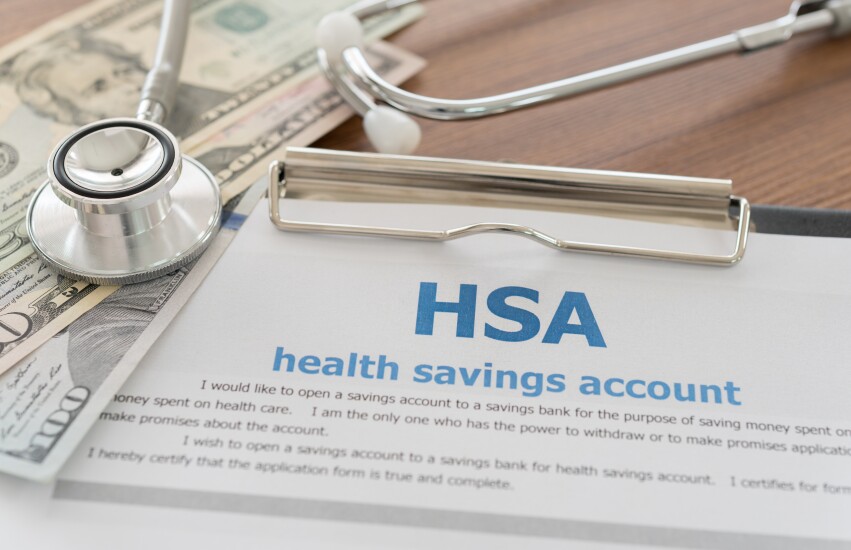Healthcare in America, especially for
Enter the health savings account, a tax-advantaged vehicle that can help many working Americans better plan for their medical and financial futures. It's a savings and investing account that Americans are becoming more aware of, but often still fail to make full use of, advisors say.
"The HSA offers the unique advantage of being a triple-tax-free account, providing valuable tax benefits that can enhance the overall effectiveness of a retirement strategy," said
READ MORE:
The HSA, which an individual can contribute to if they're
First, HSAs can help clients get an initial tax break by lowering their pretax income when they contribute. Second, the accounts can grow tax free. Third, clients can take withdrawals tax-free for "medical expenses later in life, when healthcare is expected to make up a larger portion of overall household spending," according to David Tenerelli, a financial planner at Strategic Financial Planning, a fee-only RIA in Plano, Texas.
"When their cash flow allows for it, we encourage clients to treat their HSA as a long-term investment account — a 'medical IRA' — and to pay for current medical expenses out of cash flow," Tenerelli said.
But the problem is that "relatively speaking, if you compare it to other types of accounts, the contribution limits are relatively low,"
Currently the
READ MORE:
Legislation pending in Congress
Storey said Bank of America's
"This is certainly increasing," he said. "However, with that being said, they're not necessarily maximizing the potential benefits."
A majority of employees (64%) were making regular withdrawals from those accounts, he said.
"Really what they're doing is, they're limiting that long-term growth potential for their savings …. One of the issues is really the fact that the individuals look at this as more of a spending account versus a savings account."
Financial Planning spoke with experts from across the industry and compiled tips on what financial advisors should know about working with clients on HSAs.








